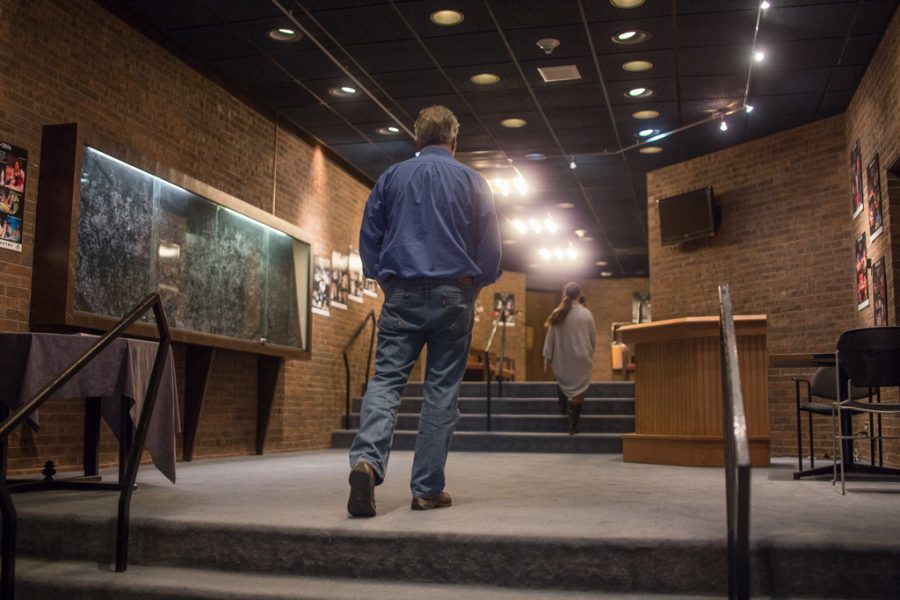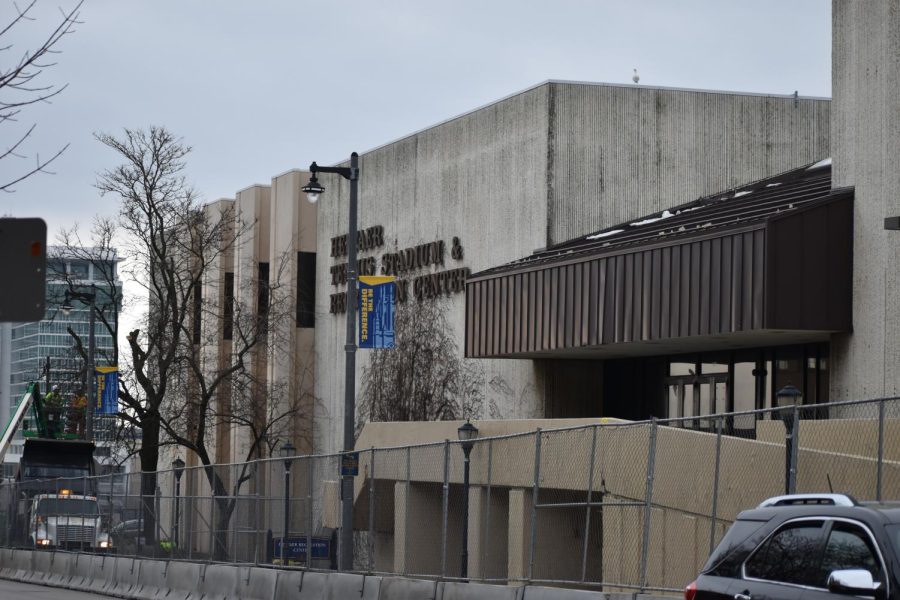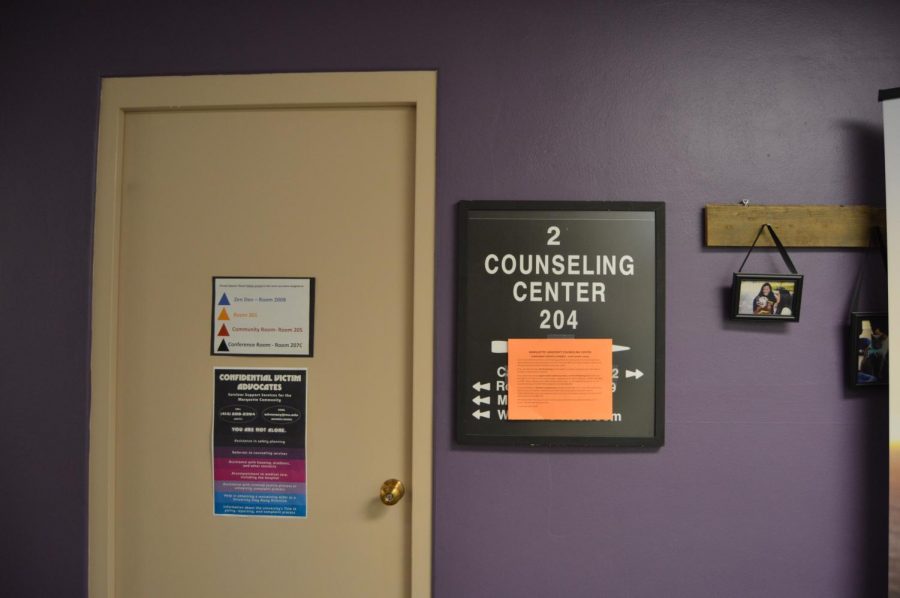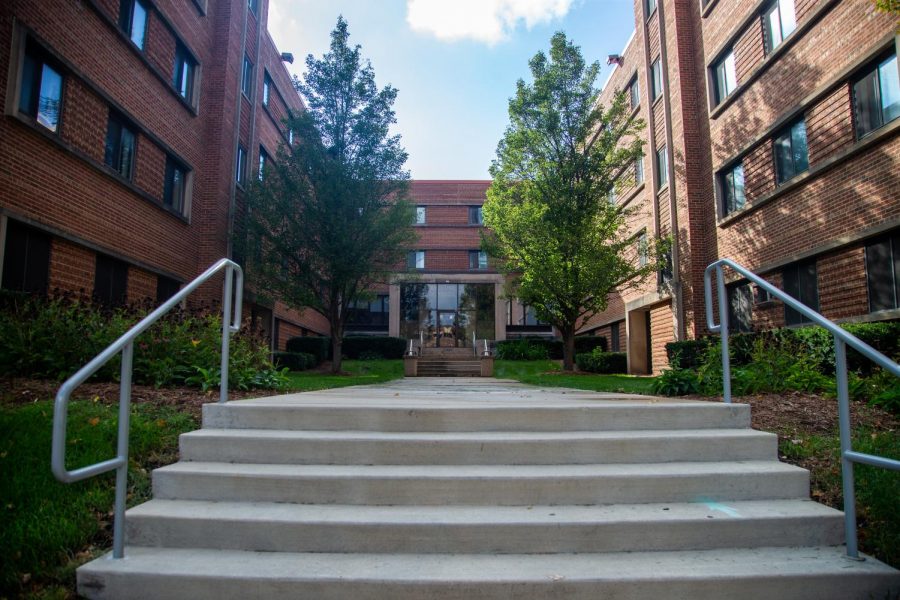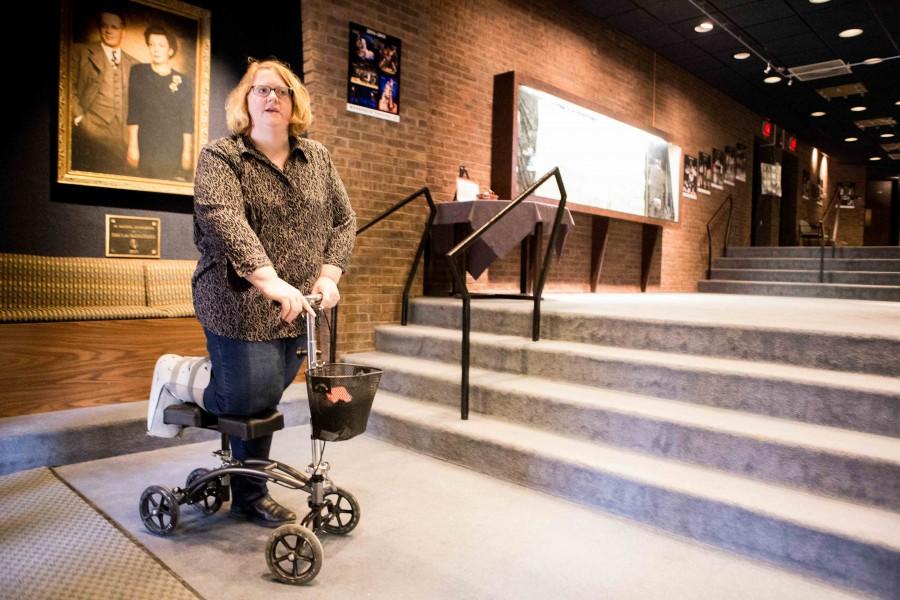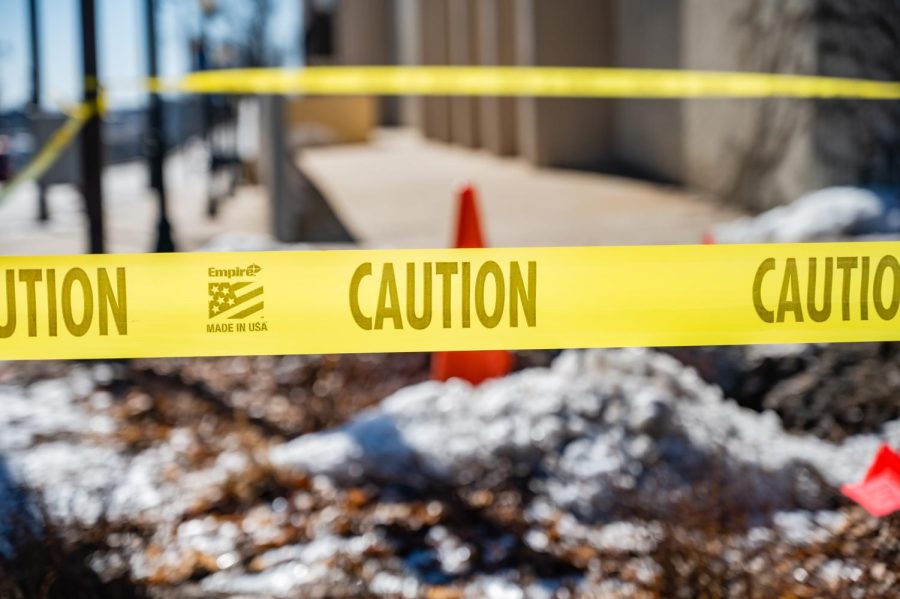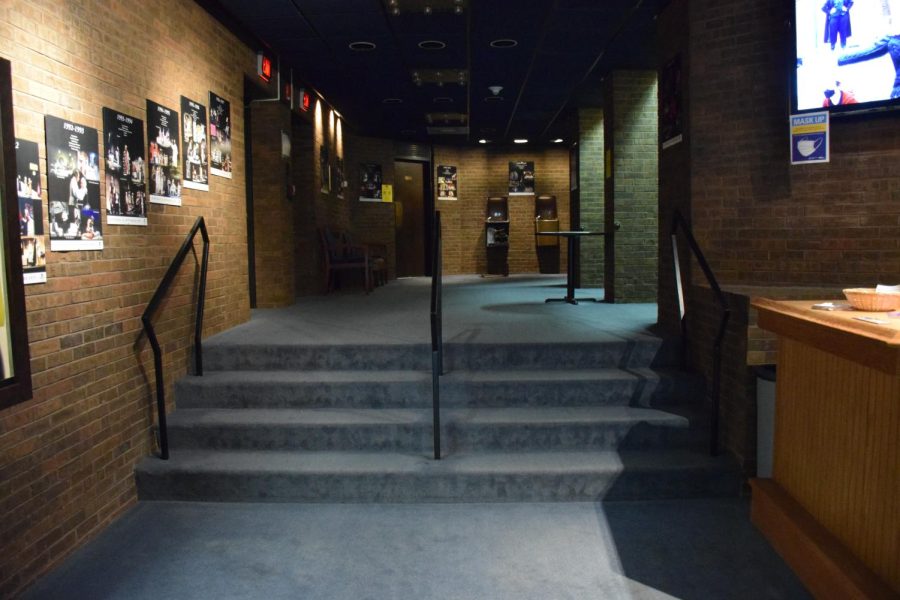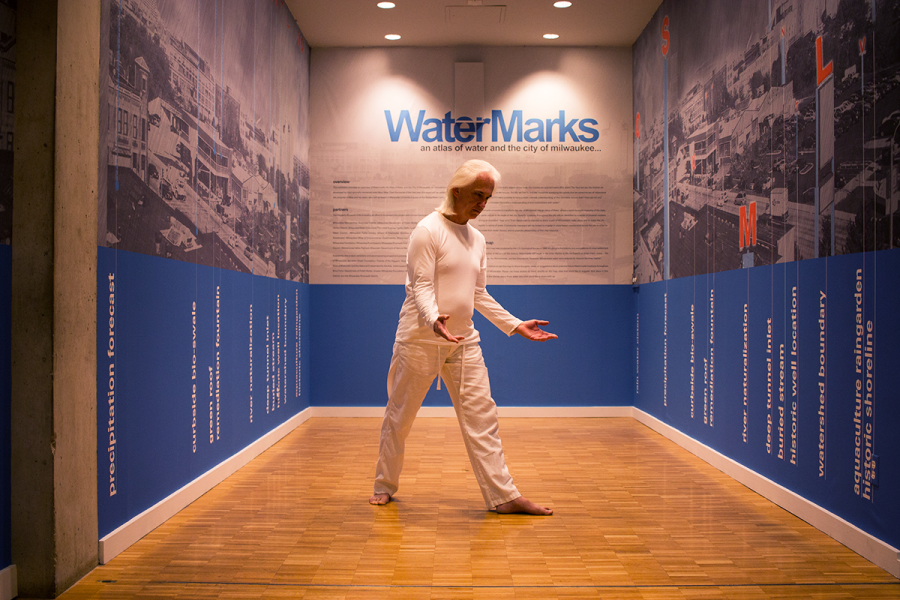“It’s something that most of us don’t think about.”
Stephen Hudson-Mairet said a person without a disability is often unaware that a building is inaccessible until it is brought to his or her attention, so he is trying to do just that.
Hudson-Mairet is an associate professor of theater and works in the Helfaer Theatre. Due to faculty and student injuries that have temporarily disabled people, and because the patron base is largely comprised of elderly people, he said he has become increasingly aware over the past four years of how inaccessible the Helfaer is.
The four-story building does not have an elevator, Connie Petersen, assistant professor of digital media and performing arts, said. Additionally, the bathrooms are too narrow to accommodate a wheelchair and the only entrance to the building that is accessible for someone with a physical disability necessitates a circuitous route around the back end of the building.
Hudson-Mairet said a recent remodel visioning offers hope the building can be updated to remedy these issues. That plan was valued between $8 and $18 million, Hudson-Mairet said. This was based on a recent estimate by the architecture firm Orchestra Design Studio.
The first phase of reconstruction would include expanding the lobby of the theater and putting in an elevator.
These issues aren’t new. The Helfaer Theatre has been inaccessible to patrons, performers and professors with physical disabilities since its construction in 1977, but the Americans with Disabilities Act wasn’t passed until 1990.
The ADA requires that both public and private colleges make programs accessible to students with disabilities. This means that colleges must provide students with learning and physical disabilities with appropriate accommodations.
However, according to the U.S. Department of Education, “The university is not required to lower or substantially modify essential requirements.” This means that the onus is not on the university to make changes to accommodate a student if the changes would fundamentally interrupt the nature of the activity.
For example, a student with a learning disability is allowed extended time on exams but is not allowed to have the content of the exam altered.
Lora Strigens, the vice president for planning and facilities management, said in an email that facilities management is “continuously evaluating spaces that may need to be upgraded to be more accessible, and the Helfaer Theatre is a prime example of that.”
Strigens, who facilitates Marquette’s master architectural plan, said she works with Marquette’s Office of Disabilities Services to assess buildings’ compliance with ADA guidelines.
Jack Bartelt is the director of disability services, and he said a building or classroom that is accessible for one student might pose a problem for another. For instance, some classrooms are not equipped with desks that provide enough space to accommodate students with power wheelchairs. However, this space might be totally accessible to a student with crutches or a push wheelchair.
“We rely on people letting us know what their needs are,” Bartelt said.
Once students identify their needs, Bartelt or a member of ODS will go through students’ schedules with them before the start of a semester and evaluate the accessibility of the assigned buildings and classrooms. Sometimes identifying an inaccessible classroom means four or five other classrooms have to move so that the students can be moved into accessible classrooms.
“Marquette does have great accommodations offered at the Office of Disability Services,” Lauren Vasko, a sophomore in the College of Business Administration, said.
Vasko has a genetic condition called Ehlers-Danlos Syndrome, which makes the connective tissue in her body loose. This causes daily muscle, nerve and joint pain, making it difficult for Vasko to walk very far. Twice a day, the Department of Campus Safety provides a ride service that takes Vasko from her residence hall to class.
“I found this challenging when I would like to get breakfast at a dining hall before class or when I need to get from a class on one side of campus to a class on the other side of campus,” Vasko said.
Because of the limited nature of the ride program, Vasko ends up taking the Milwaukee bus system to get around campus.
Like Vasko, Petersen, who works in the Helfaer, had to find creative ways to navigate spaces not accessible to her while she was recovering from ankle and foot surgery.
For three months after her surgery, tasks that once came easily to Petersen, like getting her mail, going to the bathroom, using the printer and entering her workplace, became difficult.
However, despite the Helfaer’s lack of accessibility, Bartelt said he has no knowledge of a student needing his or her schedule changed due to the inaccessibility of the Helfaer Theatre.
Petersen spends most of her time in the costume shop on the fourth floor of the Helfaer Theatre where she teaches. The stairs in the lobby of the Helfaer and lack of ramps made it impossible for Petersen to easily enter work.
In order to get into the building, Petersen had to take a roundabout route around the Helfaer on a walkway with an incline that Petersen said is icy and unsafe to use in the winter.
A safer, less steep route required Petersen go through Lalumiere Language Hall, take an elevator to the bottom floor, exit Lalumiere out of the loading dock door, and re-enter the Helfaer Theatre through the back of the building.
Upon entering the Helfaer, Petersen was met with four flights of vertical stairs and no elevator access.
“I had to rely on students for their assistance,” Petersen said.
Petersen said her hope is that discussions with the university about renovations lead to changes before someone is seriously injured.

